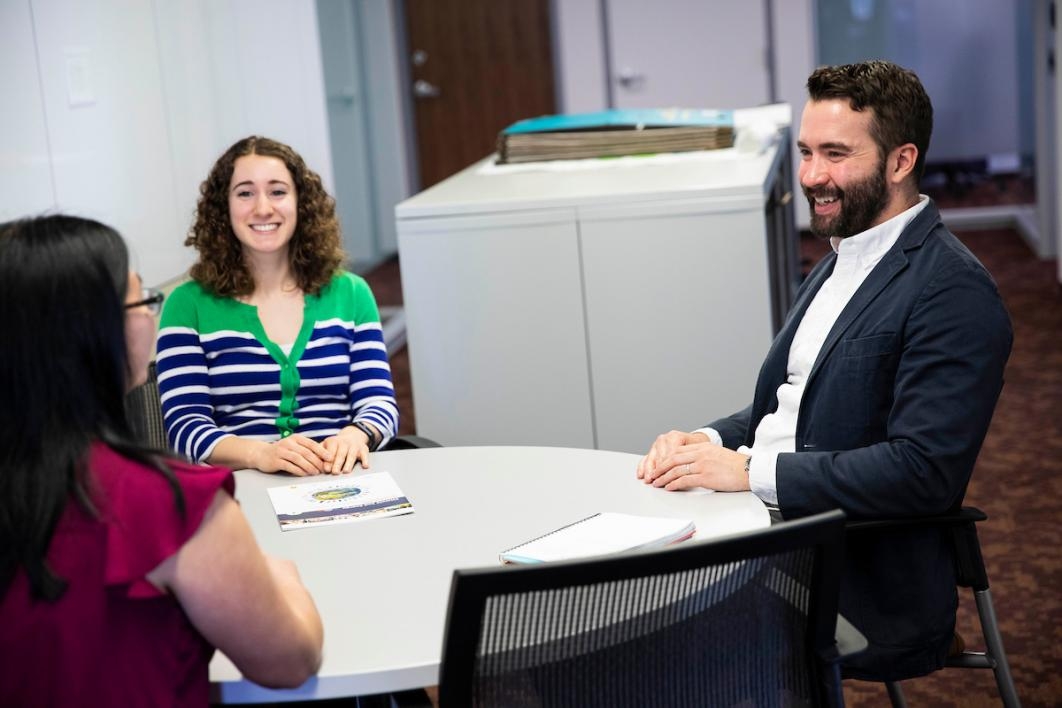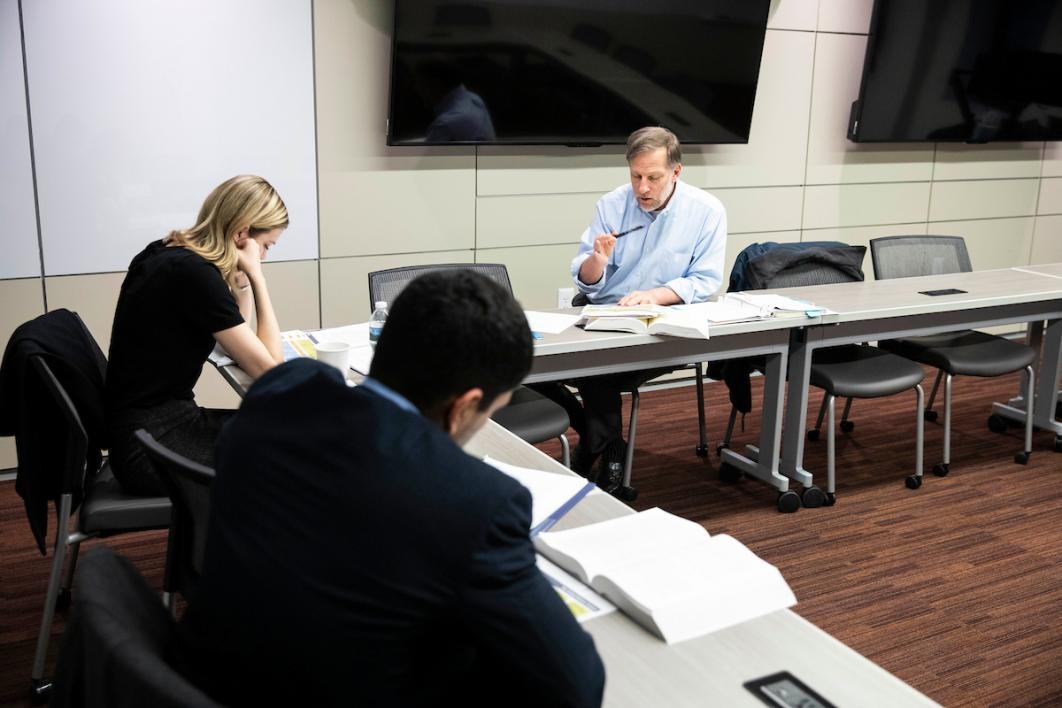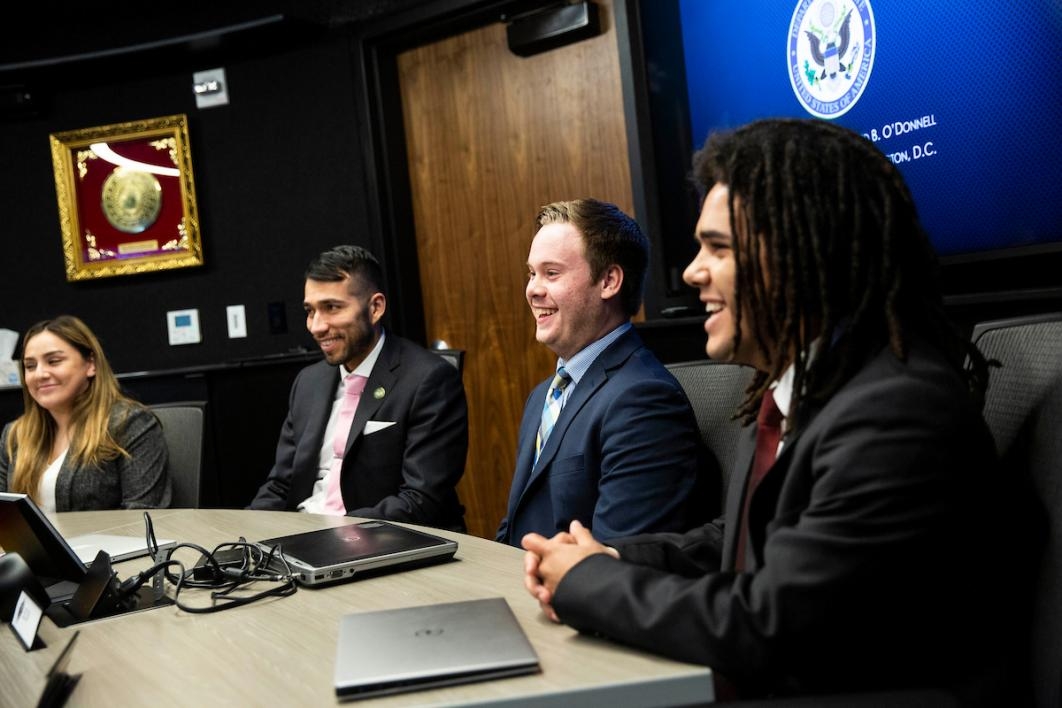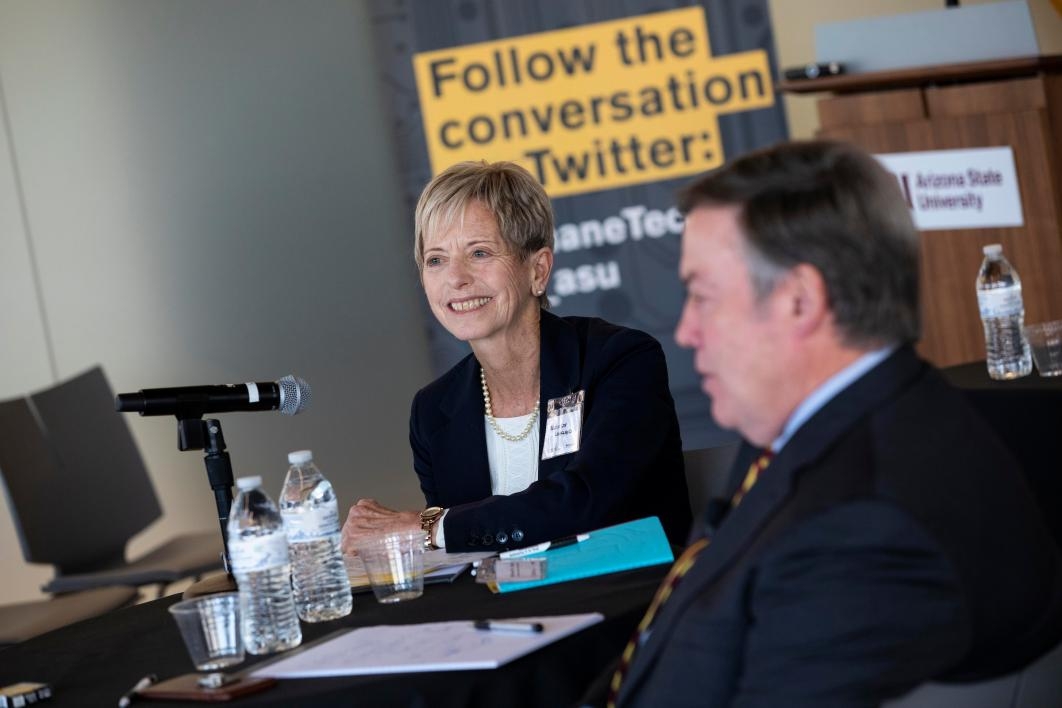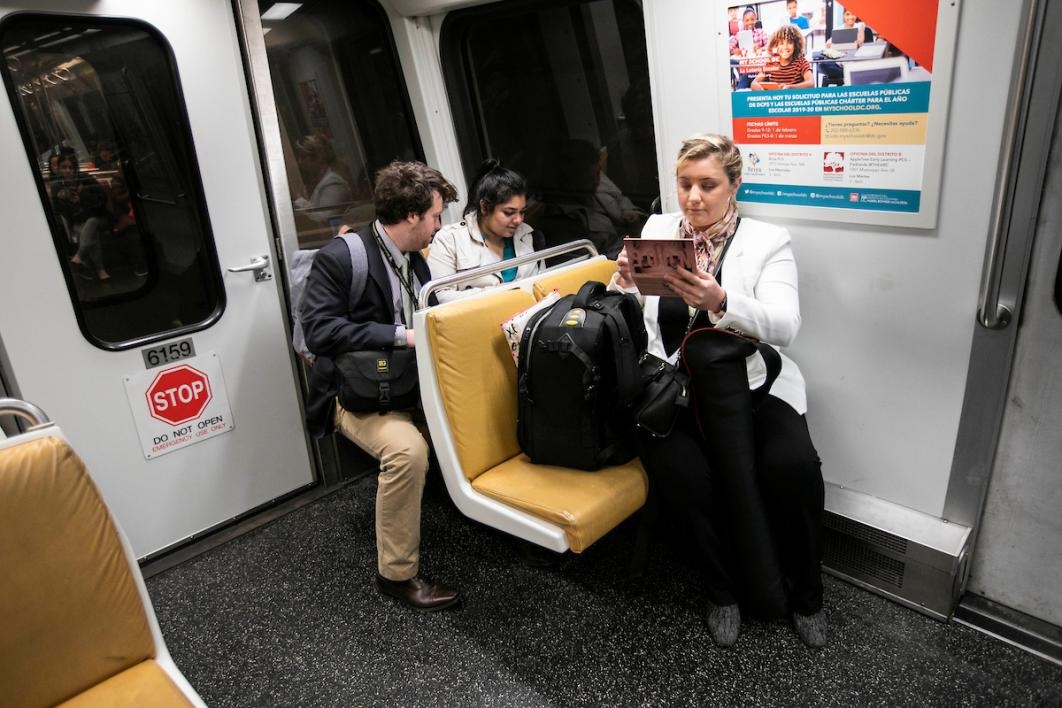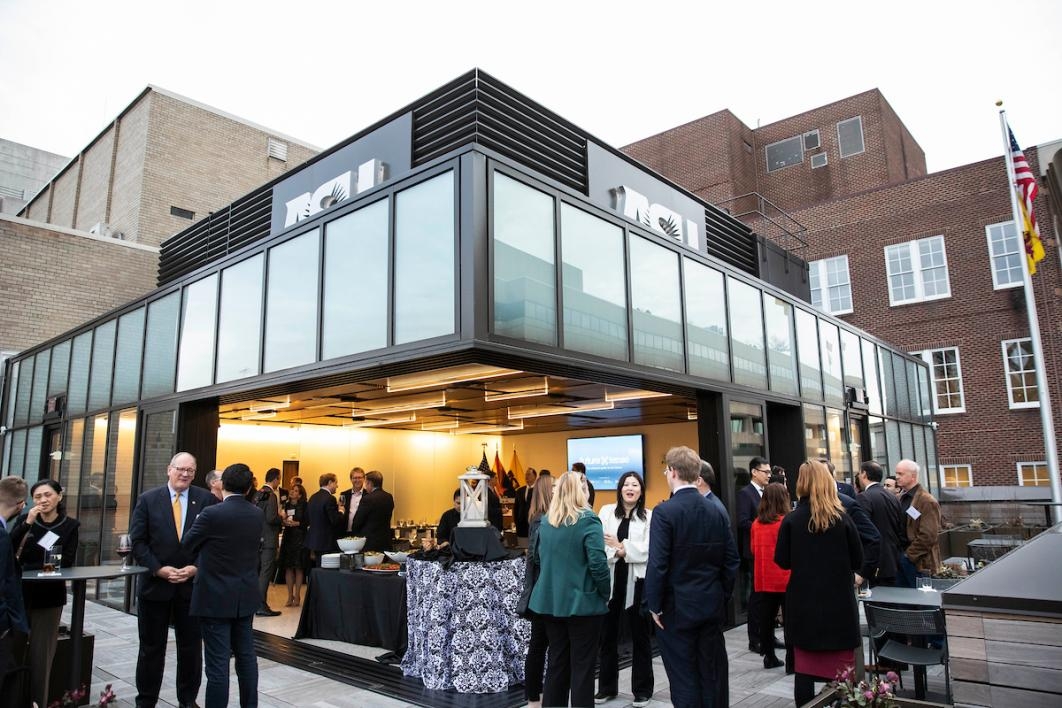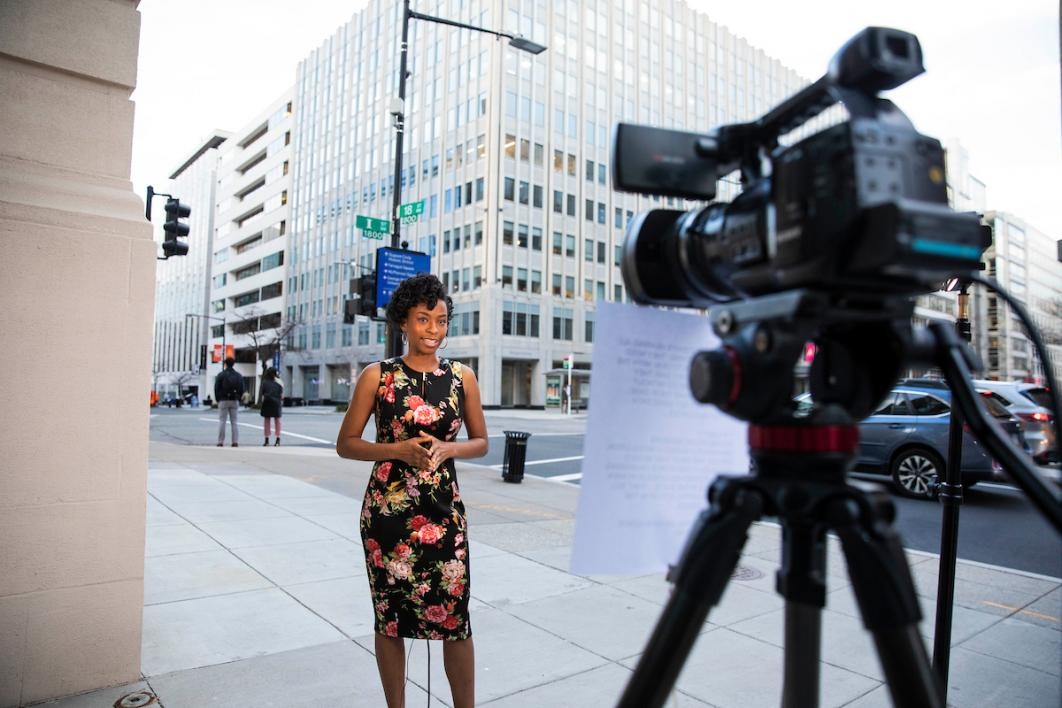ASU leans into role as international presence and player in Washington, D.C.

The Ambassador Barbara Barrett and Justice Sandra Day O’Connor Washington Center at Arizona State University just turned 1, but success has it growing in stature and size.
The formula? Offer a one-of-a-kind urban experience in an intimate setting.
ASU students are discovering the nation’s capital is made up of more than just museums, government agencies and historic buildings. It also offers invaluable learning opportunities, real-world practice and rich cultural experiences in a major cosmopolitan city.
Video by Deanna Dent/ASU Now
“I’d describe my experience here as invaluable to my education,” said Cristian Payan, a graduate student in the Sandra Day O’Connor College of Law. “You don’t get an opportunity like a personally guided tour of the U.S. Capitol by someone like Congressman David Schweikert every day — and when you do, you have to make the most of it.”
Payan has been living in Washington, D.C., since January. In addition to touring the Capitol, the Smithsonian, the Lincoln Memorial, the Washington Monument and the Vietnam Veterans Memorial Wall, he said he’s taking law classes with professors of practice and is currently interning with the United States Agency for International Development. He’s also creating valuable networking opportunities that will come in handy when he graduates this May.
“Living here is a good way to gain some perspective on a national level,” Payan said.
ASU has long hosted students, faculty and staff in Washington, D.C., but with its dedicated 32,000-square-foot, eight-story center in a historic building at 1800 I St. NW, a mere two blocks from the White House, it has become an international presence and player in the nation’s most powerful city.
“We have massive visibility on a critical corner in downtown Washington, D.C. ASU is lit up in big letters, and it’s obvious to all that we are here,” said former Ambassador Michael C. Polt, senior director of leadership programs at the McCain Institute for International Leadership. “Policymakers, influencers and think-tankers around this town and from around the country come into this building. We are a convener for researchers, politicians and academics on important issues. Important decisions that affect a lot of Americans are made here, and ASU is now part of that conversation.”
Those issues are as deep and wide as the offerings and initiatives based at the Washington, D.C., location. In addition to the McCain Institute, the building also houses programs from the Walter Cronkite School of Journalism and Mass Communication, Cronkite News/Arizona PBS Washington Bureau, the Academy for Innovative Higher Education Leadership, the Center on the Future of War, the Global Security Initiative and the Consortium for Science, Policy and Outcomes, among others.
These programs are strategically placed and right where they need to be because it amplifies ASU’s voice in national conversations, said ASU’s Cheryl Bassett, the director of Combatting Human Trafficking Training Initiatives at the McCain Institute.
“Our location is fantastic because lots of national stakeholders are in the general vicinity of this building — because all roads lead to Washington, D.C.,” Bassett said. “We bring knowledge from the field to D.C. to think about issues on a national level. It certainly is the perfect place for us to develop partnerships.”
Those partnerships include think tanks, federal research agencies, policy councils, nonprofit organizations, national associations and other colleges and universities who are focused on society’s most pressing challenges related to education, health, economic development, the environment, social justice and other global issues.
The Washington, D.C., location also offers learning, teaching and research opportunities for students and faculty members that are simply not within reach elsewhere. For example, retired Army Lt. Gen. Benjamin C. Freakley, former commanding general, now a senior adviser to both ASU President Michael Crow and the McCain Institute, offers a daylong applied leadership class at Gettysburg National Military Park once a semester.
“The center offers a constantly expanding menu of ASU learning opportunities,” Freakley said. “Students also participate in debates, hearings on Capitol Hill and attend think tank events focused on the leading issues both domestically and abroad. Our students return to ASU with new ideas and concepts to explore with faculty and fellow students, given their remarkable semester in Washington, D.C.”
For journalism major Imani Stephens, the city offered her “an opportunity to be on the front lines of history.”
“I reported on the passing of Arizona Sen. John McCain, the protests for Brett Kavanaugh’s Supreme Court hearings and the 2018 midterm elections,” said Stephens, who spent fall 2018 in the nation’s capital. “I had journalistic opportunities on the national level and reported alongside CNN, MSNBC, NBC and other network news organizations. And here I was a college student going up against veteran journalists who had been doing this a long time.”
In addition to reporting for Cronkite News, Stephens took an internship with CBS Evening News, interviewed high-level politicians, met with sorority sisters at nearby Howard University and visited historic stops throughout the city on Washington’s world-class Metrorail system.
“I was pushed out of my comfort zone, but it made me a more-rounded person,” Stephens said. “I’m so much more aware of things and issues today. You can’t learn if you stay in one city or town for the rest of your life.”
Payan and Stephens’ experience is typical of what can happen in Washington, D.C., said Julia Fromholz, a professor of practice at ASU Law.
“Students are able to get work experiences in organizations or agencies that just don’t exist outside of Washington, D.C.” said Fromholz, who serves as director of the International Rule of Law and Security program at ASU’s Sandra Day O’Connor College of Law. “It’s given them a broader perspective of what they can do after they graduate.”
That perspective will be broadened for more students as the campus expands next week. In February, the Arizona Board of Regents approved a lease for an 8,400-square-foot space in a nearby building because programs at the location are becoming more popular and growing faster than expected. That’s not a surprise to Amanda Petersen, an ASU Law graduate who studied for a semester in Washington, D.C.
“The professors that teach courses in Washington, D.C., are extremely well-known in their respective fields, and it’s an awesome way to learn,” said Petersen, who graduated in May 2018 and now works for the Maricopa County Attorney’s Office. “The class sizes were also more intimate, and it gave us more time to get to know our classmates and instructors. You experience a lot together with a group of people.”
For Petersen, some of those one-of-a-kind experiences included watching President Donald Trump’s inauguration and the 2017 Women’s March, which took place a day later. She also experienced snow and cold weather and watched the cherry blossoms reach peak bloom in the spring.
“In many ways that semester in Washington, D.C., was like a study abroad experience,” Petersen said. “I think fondly of my time there.”
More Law, journalism and politics
Can elections results be counted quickly yet reliably?
Election results that are released as quickly as the public demands but are reliable enough to earn wide acceptance may not always be possible.At least that's what a bipartisan panel of elections…
Spring break trip to Hawaiʻi provides insight into Indigenous law
A group of Arizona State University law students spent a week in Hawaiʻi for spring break. And while they did take in some of the sites, sounds and tastes of the tropical destination, the trip…

LA journalists and officials gather to connect and salute fire coverage
Recognition of Los Angeles-area media coverage of the region’s January wildfires was the primary message as hundreds gathered at ASU California Center Broadway for an annual convening of journalists…


